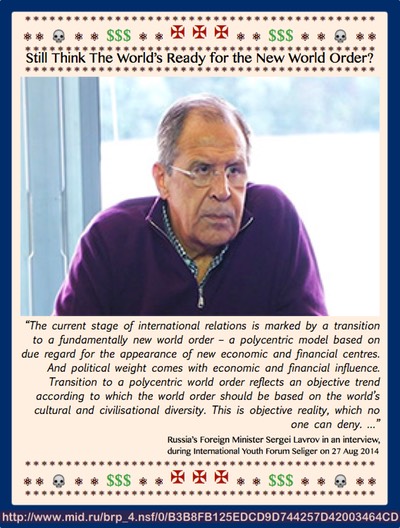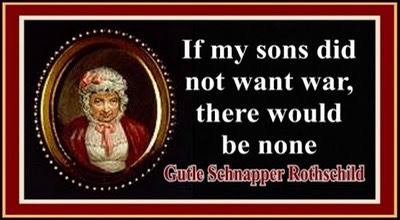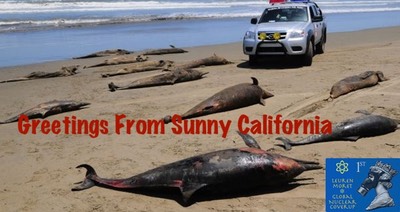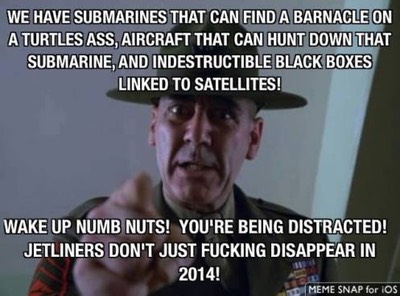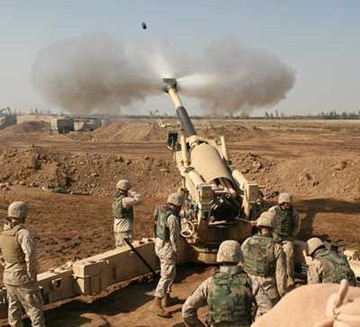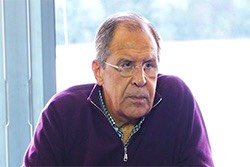
Foreign Minister Sergey Lavrov’s speech and answers to questions during International Youth Forum Seliger
Good afternoon, August 27, 2014
First, I’d like to thank forum organisers for inviting me here. This meeting is really important to me because diplomacy must be in sync with the sentiments of those who have chosen one of the social sciences as their profession and who care for their country and its future through the development of national consensus with the use of all the society’s available spiritual, intellectual and material resources. Now that globalisation has reached out to all spheres of human life, the line between domestic and foreign policies is becoming relative, because these policies have become intertwined and are influencing each other.
Take colour revolutions. Although they take place inside countries, they are fostered by external forces. Most colour revolutions would not have happened without this external influence. But after they happened and certain changes (mostly the change of government) took place inside a given country, these events started to exert major destabilising influence on international politics. This happened in Georgia, and this is happening now in Ukraine. Due to the collapse of a binding bipolar chassis, which held the world together during the Cold War, international relations have become extremely unpredictable and are fraught with a huge number of risks. This contradicts the forecasts made in the late 1980s and early 1990s about “the end of history” and the spread of Western standards and uniformity. It was an illusion, a fantasy and, if you prefer, a mistake.
The current stage of international relations is marked by a transition to a fundamentally new world order – a polycentric model based on due regard for the appearance of new economic and financial centres. And political weight comes with economic and financial influence. Transition to a polycentric world order reflects an objective trend according to which the world order should be based on the world’s cultural and civilisational diversity. This is objective reality, which no one can deny.
The number of challenges we are facing has not diminished. It would seem that international terrorism, drug trafficking, illegal migration, the danger of the proliferation of weapons of mass destruction, epidemics and regional conflicts should encourage the international community to join forces against these common threats. But possible collective efforts in dealing with these challenges on the international stage are hampered by the determination of the United States and the West as a whole to preserve their global domination, to which they have become accustomed over the past centuries, and to delay the development of a multipolar and polycentric world, which, as I have said, is the objective trend in global development.
It is said that Russia’s recent actions have undermined the foundations of the post-war world order. Nothing can be further from the truth than this allegation – if anything, it were our Western partners who led the way by their disregard for the standards and principles of the UN Charter, the Helsinki Final Act and other OSCE documents. I’d like to remind you of the unthinkable event that happened in the late 1990s, when some OSCE member states bombed an OSCE country – Yugoslavia. Before that, the Socialist Federal Republic of Yugoslavia (SFRY) was dissolved in violation of many OSCE standards and principles. Here is how it happened. The first to “flee” the SFRY was Croatia. The EU thought long and hard on a common attitude to its secession, but Germany decided not to wait for its EU partners’ decision and unilaterally recognised Croatia, which led to a chain reaction. As I have said, next came the bombing of Yugoslavia in violation of all and any OSCE standards and obligations. And then came the aggression in Iraq and, quite recently, the bombing of Libya contrary to the UN Security Council resolution, and many other events.
Russia is more interested in strengthening international law than anyone else. We are interested in avoiding double standards and fulfilling agreements formalised within the UN and OSCE formats, in relations between Russia and NATO, Russia and the EU, as well as those being signed by parties to international law. This is our principled approach.
Everything I mentioned here is directly linked with Russia’s current stance on the profound crisis in Ukraine. We have done a great deal at the early stages to coordinate certain steps of the international community that would allow the Ukrainians to deescalate the crisis, to move away from the brink of civil war and to launch talks.
As far back as 21 February 2014, an agreement was signed between former President of Ukraine Viktor Yanukovych and the then opposition leaders Arseny Yatsenyuk, Vitaly Klitschko and Oleg Tyahnybok. The Foreign Ministers of Germany, France and Poland also signed the document. Its first clause contained an obligation to establish a government of national unity that would prepare a constitutional reform suiting everyone in Ukraine. A general election was to have been held on the basis of the new constitution. I want to stress that it was the opposition leaders, rather than Yanukovych, who insisted the government of national unity should become the foundation of efforts to resolve the crisis.
Yanukovych “disappeared,” he was overthrown under the pretext of fleeing the country, although he did not flee anywhere but remained in Ukraine. The 21 February agreement was trampled upon virtually on the following day. Instead of fulfilling its obligations and establishing a government of national unity, the opposition announced the creation of a “government of winners.” In effect, they sent a message to all those who disagreed with the coup d’état that these people are perceived as the defeated side. A series of confrontationist moves followed, including the abortive but sensational attempt to abolish the law on languages. People in southeastern Ukraine were justified in viewing this as an encroachment on the positions of the Russian language. This gave a start to developments whose consequences we are witnessing today.
Russia did not abandon its efforts and became actively involved in international efforts to find a way out of this impasse. On 17 April, Geneva hosted a meeting between Russian and Ukrainian Foreign Ministers, the US Secretary of State and the High Representative of the Union for Foreign Affairs and Security Policy. They adopted a statement on the need for the immediate cessation of the use of force and the start of a transparent constitutional reform which should encompass all regions and all national political forces. None of this happened, and no constitutional process was launched. A certain document stipulating amendments to the Ukrainian Constitution was covertly drafted behind the scenes. Not even all the Verkhovna Rada deputies saw that document. It has not been published to date, and it has not become the subject of a nationwide dialogue, as pledged by the Ukrainian leadership in the Geneva statement. Since then, we have been constantly drawing the attention of the Ukrainian side and other signatories to the need to honour agreed-upon provisions, not to try to secure what has been “pocketed” so far and not to put off everything they have promised to do until a later date, if not forever.
The task of achieving an immediate ceasefire came to the fore during the escalation of this terrible confrontation in southeastern Ukraine. Yet another attempt was made after President of Russia Vladimir Putin, as well as the Presidents of Ukraine and France and the Chancellor of Germany, agreed, during celebrations in Normandy marking the 70th anniversary of opening the Second Front, to work in this format. Russian, Ukrainian, French and German Foreign Ministers met in Germany on 2 July and approved a statement noting that an immediate and unconditional ceasefire is a top priority. Almost two months have passed since then, but nothing has changed, and no ceasefire has been attained.
Instead of complying with its commitment to agree to a ceasefire without any preconditions, the Ukrainian side has put forward preliminary demands that no one has negotiated. These are about releasing all hostages before a truce is announced and imposing tighter control on the border. We have nothing against talks on these topics, but the truce itself cannot be “hostage” to these talks. The main thing now is to stop so that everyone quit firing. Above all, the Ukrainian side, as it has committed itself under the Geneva Statement of 17 April, which I have mentioned, should invite all regions of the country, including, of course, the south-east, to immediately start a national constitutional dialogue which could work out such amendments to the country’s fundamental law as would ensure a comfortable, secure and equitable coexistence within the Ukrainian state of all ethnic groups, minorities and regions, with account taken of their economic interests. What is needed is national accord which can only be achieved on the basis of a balance of interests of all regions and political forces in the country.
Let me say a few words about how the meeting went ahead in Minsk yesterday. It began in a multilateral format and was attended by the presidents of the Customs Union countries – Vladimir Putin of Russia, Nursultan Nazarbayev of Kazakhstan and Alexander Lukashenko of Belarus – as well as President Petro Poroshenko of Ukraine, Chairman of the Collegium of the Eurasian Economic Commission Viktor Khristenko and three EU commissioners: High Representative for Foreign Affairs and Security Policy Catherine Ashton, Commissioner for Trade Karel De Gucht, and Commissioner for Energy Gunter Oettinger. The discussion pertained to issues mentioned by Vladimir Putin at his news conference. In the first place, this is the economic component of the current situation in connection with Ukraine’s intention to sign the EU association agreement and join the EU free trade area, and the fact that this step would generate a number of risks for the interests of countries which form, along with Ukraine, another free trade zone within the CIS. Ukraine’s commitments to the CIS free trade zone, as is our profound belief confirmed by an analysis that was presented yesterday, will come into conflict with the commitments that Ukraine would assume in joining the EU free trade area and signing the association agreement.
The discussion was frank and detailed. The sides agreed that the consultations on this score, which had come under way not so long ago, should be intensified. The economics ministers and other representatives of the relevant governments’ economic sector were instructed to work on coordinating approaches to problems that could be settled at the expert level and to try and achieve compromises. The problems that the experts will fail to agree on should be referred to the level of heads of state within the foreseeable future, but not later than 12 September of this year. I regret this because, to my mind, we ought not to impose artificial deadlines.
Speakers at the meeting of the leaders of Russia, Ukraine, Germany and France in Normandy said that it was necessary to prioritise an agreement on some forms of harmonising processes within the framework of relations between Ukraine and the CIS and Customs Union countries, on the one hand, and the European Union, on the other. Artificial deadlines will not help in this regard. Nevertheless, in a gesture of good will we agreed to try to finish the job by 12 September, because we understand that the Ukrainian leadership has assumed a public commitment to ratify the EU association agreement in September. President Putin gave repeated and sincere warnings to the effect that we, if the ratification occurs without any agreements with Russia and the CU members, will cease, in full conformity with the CIS Free Trade Zone Agreement, providing certain preferences to our trade partners in Ukraine and transition to the same forms of trade and economic cooperation as we use in cooperating with the EU. This means employing the most favoured nation regime, which is a standard arrangement for all WTO members – no discrimination or sanctions but no privileges and preferences either.
It seems odd that such determination to ratify the agreement with the EU in September is declared exactly when the dissolution of the Verkhovna Rada and the holding of an early election on 26 October are announced. The plan is to make the current deputies ratify the agreement. As it was explained, the parliament should be dissolved because it does not reflect the people’s will. But wouldn’t it be better to wait for the election, when people can vote for their representatives, having good judgment of what is going on and what they want to see in the future? The European Union has openly expressed hope that, despite the declared election, Ukraine will not postpone the ratification and sign the agreement in September.
During talks yesterday, everyone agreed that the situation in the southeast is a humanitarian crisis and admitted the importance of providing humanitarian aid to the region. Kazakh President Nursultan Nazarbayev and Belarusian President Alexander Lukashenko emphasised the role of Russia’s initiatives. As you all know, we have already sent a humanitarian convoy to Ukraine, and have officially informed the Ukrainian party of our intention to send another convoy in the next few days. The presidents of Russia and Ukraine discussed that issue yesterday during their bilateral meeting. Meanwhile, I spoke with Ukrainian Foreign Minister Pavel Klimkin. It stands to reason that we will be able to find managing and logistics solutions to send the second humanitarian aid convoy to Ukraine’s southeast. I am confident that it won’t be the last one, because a large effort is needed there. Kazakhstan and Belarus, as well as EU representatives, have expressed their readiness to join our efforts and send humanitarian aid to the region. We will encourage the world community to have a responsible attitude to the tragedy affecting around four million people in the Ukrainian southeast. Over one million people have fled the region, most of them to Russia. I can tell you more about it if you are interested.
As for economic relations, the issue of resuming gas talks between Russia and Ukraine was mentioned. The European Commission is interested in it for obvious reasons. No one is happy to hear Kiev’s warnings and threats about the possible gas transit halt. European Commissioner for Energy Gunther Oettinger yesterday expressed confidence, or probably hope, that the Ukrainian authorities would not halt the transit of Russian gas to European countries.
Besides economic and humanitarian issues, another priority is to stop the bloodshed and find ways to start a true dialogue. It was agreed to continue the work of the contact group, which has been convoked several times with the participation of Russia, the Ukrainian leadership, the OSCE and delegations from Lugansk and Donetsk. Everyone understands that this mechanism should be used more at this stage. The relevant request was made yesterday in Minsk. Our Belarusian friends suggested their capital be the permanent platform for such contacts. It is possible that, taking into account that the bloodshed is ongoing in the Lugansk and Donetsk regions, and the militia would not want to go to Kiev and be arrested, Minsk seems like a convenient place for holding such meetings. We have supported this initiative.
We are not interested in confrontation and further escalation of sanctions. Long before the events in Ukraine, the level of criticism of Russia became totally inappropriate. It all started much before the spring events. We received condemnation for our alleged efforts to halt the “democratic revolution” in Syria, and for our support of “dictator” Bashar al-Assad. It is interesting to listen now to those who earlier said that they would never keep terms with Bashar al-Assad. It is obvious now that they have to cooperate with him to combat terrorists from the Islamic State.
We have been criticised for less important things, such as the Magnitsky case. I said it was a less important thing, but it concerned human life, and a human tragedy was used to score political points. Remember how President Barack Obama cancelled his visit to Moscow before the G20 summit in St Petersburg because of Edward Snowden? Or the slandering of Russia in a variety of ways only because we held the Olympics at Sochi?
If a crisis did not hit Ukraine, they would have carried on with this policy anyway. We deeply regret that this approach has taken deep roots in the leaderships of many countries, but primarily the United States. After a long period of dominance in global economy and politics, these countries are trying to keep their positions by artificial means. They know that their economic positions are not as strong as they were after WWII, when America accounted for over half of global GDP, but they are trying to use all available military and political instruments, social media, regime-change technology and other instruments to keep back the objective process of the development of a democratic world order based on the equality of all sides.
Not everyone has realised yet that it is impossible to move contrary to an objective historical process. We strongly hope that this will happen, because otherwise more illegal unilateral sanctions will be approved against Russia, to which we will respond accordingly, as we have already tried to do. But this, I repeat, is not our choice; we don’t want confrontation. The overwhelming tone of the Western media should be reviewed because it is not fuelled by public opinion but by the political leadership of Western countries, who set the tune in society and then say that their anti-Russian actions are based on public opinion. Russian political analysts also ask who Russia’s allies are, citing the example of NATO, which always votes as a bloc. Russia has many allies, including CSTO member states, partners in the Eurasian integration projects, the SCO member states, the BRICS countries and the overwhelming majority of countries in Asia, Africa and Latin America.
Speaking about alliances, but not in the old meaning of the word or in terms of strict bloc discipline, when NATO was up against the Warsaw Pact and everyone knew that this side of the negotiating table will vote “for” and the other “against” – such heavy-handed discipline has become humiliating for the countries that advocate democracy and plurality of opinion. It is flexible network unions that we need today. When they say that our CSTO allies do not always vote the same as Russia – for example, Russia votes against something, while its CSTO partners abstain or do not take part in the voting at all – when this happens, we don’t dramatise the situation, unlike NATO where any side step or demonstration of dissent are punishable. We know this, and we also know that emissaries are immediately dispatched to the capitals of those countries that dared acting independently, and what “practical conclusions” are made from this, as we used to say in the past.
We respect our partners and their right to variation, if you like. We know that they are with us on the main points, and there is nothing terrible if our positions on some issues are not absolutely uniform. Moreover, I believe that this does not undermine but benefits our relations. Russia is being criticised primarily because it has put forth its interests more openly than any other country and because it does not offer its views as the ultimate truth but is willing to listen – and it does listen – to the opinions of others, hoping for reciprocity and that it will not be punished for its independence, which in the modern civilised world would be beyond good and evil. President Vladimir Putin has said more than once that we view our foreign policy independence and sovereignty as the key fundamental values. And we will continue in the same vein.
Putting aside our opinion of Edward Snowden and those who overthrew the government in Ukraine, and moving on to our views about the world order, we believe that the world order must be fair, democratic and based on respect for international law and the sum total of principles of the UN Charter, without double standards or anyone’s right to exclusivity. From this point of view, the overwhelming majority of countries are Russia’s allies.
Question: It is a great honour for us to have you here.
The Russian Federation has taken retaliatory measures against the western sanctions. How will it affect international cooperation, including the UN Rome-based platforms, cooperation in food security and tackling global challenges in this area? How should the Russian complex cooperation programme in agriculture, fisheries and other food industries be revised? How can we, the younger generation, including experts in agricultural and international law, help?
Sergey Lavrov: Food security is an inseparable part of national security for any state. As experts, you know that the objective to provide sufficient food was set long before the events you mentioned. A country like Russia should be self-sufficient, especially as we have the capability to provide our people with quality food at reasonable prices. This is a given, and it does not depend on anything.
As for the sanctions, it was a coerced measure. It was chosen as retaliation for the unacceptable, unilateral actions that violated WTO rules by the European Union, the US and some other countries. The measures were taken for many reasons, as President Vladimir Putin said, with regard to our interest in supporting Russian food producers. The sanctions imposed by our western partners included limiting Rosselkhozbank’s access to resources abroad. This means that the bank, whose role is to issue subsidies and finance to agricultural producers, has lost part of its potential, and European agricultural producers, who export their foods to Russia and whose banks are not limited in any way, acquired unfair competitive advantages. This is the first reason.
Another reason is national security, the criteria described in the WTO regulations, which can be used by its members as a protective measure. The Russian leadership had to consider if it was reasonable to retain food dependence on the countries which unilaterally enforced illegitimate sanctions and publicly call us a rival, rather than a partner, to say the least, and view us as an enemy.
These two reasons are important. This, however, does not affect our attitude towards cooperation with the WTO in any way, nor with the United Nations Food and Agriculture Organisation or the International Fund for Agricultural Development, which we have recently joined. We stand for further cooperation. I will repeat, these measures are not connected with our WTO participation and do not limit our activity in the projects within the organisation.
As for your question about how our lawyers specialising in agribusiness can contribute to our food security, I have every confidence in you. You are interested in this subject, you have the required knowledge and skills and I can see that you are working hard on this issue. I wish you success.
Question: I’d like to say that I am proud that the Russian people have three wonderful qualities: patience, willingness to help and the ability to forgive. In particular, we have forgiven a significant part of Cuba’s debt. What does Russia receive in return for waiving a part of some countries’ debts? Is what we get comparable to what we give away?
Sergey Lavrov: Not everything can be measured with money. But you mentioned three qualities of our people: patience, willingness to help and the ability to forgive. Speaking of the Cuban debt, we were patient for a long time, and then decided to help and forgive. The part of the debt which was not waived (about $3.5 billion, if I’m not mistaken), will be invested in the Cuban economy with the participation of Russian companies, as was agreed.
We understand that the relations between the USSR and Cuba were unique, and that the rouble exchange rate was largely based on convention. This was part of the problem, too. One US dollar cost 60 kopecks. It was obvious that Cuba would not be able to repay the debt. By finding a formula to ease the budget situation in the country, waiving the debt and settling the debt problem, we have allowed Cuba to expand its ability to take out loans on foreign markets, because the debt issue was a restraining factor. The rest of the sum will go towards real investment in the Cuban economy, which will benefit Russian companies, and, of course, Cubans themselves. The benefit is mutual. We could have waited and waited, but no one would have gained anything from that. When our desire to help, understand and forgive won, the situation was resolved to mutual satisfaction.
Question: In view of the controversy of the latest geopolitical developments, Russia’s stance is covered in the media and at the international meetings by you, the Russian President and Russia’s envoy to the United Nations, Vitaly Churkin. Why is the Russian elite so passive, so little involved in the process of creating a positive image of our country and explaining our position to the world community?
Sergey Lavrov: Whenever I go through the documents released by the Russian Foreign Ministry with proposals to the nation’s leadership, and whenever I see the phrase “to promote the creation of a positive image of Russia in the international arena,” I always change the word “positive” to “objective.” We don’t need artificial positivity, we want to be known the way we are – we have nothing to be embarrassed about. Even in those cases when we are obviously in a minority, we are ready to honestly explain why we take a certain stance. The cases when we are in a minority do happen − nobody denies that − and in most of them, the majority is molded artificially by touring the world, arm-twisting or promising all sorts of benefits. This is common knowledge. And then we hear in whispers, “Sorry, we had to act that way. We are being blackmailed so to speak.” We take it as something which, unfortunately, still exits in this world. But we are not making a scandal or a tragedy out of it.
We undertake a lot. And this is not just a task for the elite but for the media as well. What do we understand as elite? I believe here we also see the elite who are interested in immediately getting directly engaged in managing the country, in solving social and economic issues, and humanitarian and ethnic problems. And all that cannot be done without taking account of the external factor, as I have already said.
Everything is intertwined in the world. Let me give you the following example. The Russia Today TV channel is a truly successful project, a very efficient media outlet offering an alternative point of view. The channel’s popularity is on a par with that of CNN, the BBC and many other leading TV channels in the USA and in Europe. We are currently ratcheting up humanitarian diplomacy, reviving the activities of the Rossotrudnichestvo agency. The Russian Science and Culture Centres abroad should get additional funding -- the President issued a directive in this respect supported by the decision of the Security Council of the Russian Federation so that as many events as possible can be held for those who are interested in Russia, the Russian language and our culture.
Generally speaking, information and education are components of “soft power” with a colossal impact. Let me reiterate, we are currently actively engaged in that, and we are getting support from the country’s leadership. Work with compatriots is transcending into a qualitatively new level. There are programmes for their support. The Foundation for the Protection of Compatriots Abroad has been set up. We encourage non-government organisations that are interested in international affairs and want to cover at foreign venues developments in Russia. To support those organisations, the A.M. Gorchakov Public Diplomacy Foundation was set up, NGOs are issued grants to participate in international events held by the OSCE, UN, Council of Europe and the like. These are just a few of the examples.
The number of fellowships for foreign students is increasing so that they could study in the Russian Federation. We are trying to direct the fellowships and choose promising students who want not only to get education somewhere but those who want to study specifically in Russia and later to promote the relations of their home country with the Russian Federation. The number of young foreigners invited annually for familiarisation tours of Russia with Russian young people is growing. This is a very promising format.
I think the elite should certainly speak about what we are doing, and should explain why we believe we should act one way in a certain situation, whereas in a different situation we should act differently. However, we should engage civil society. I believe civil society represented by those taking interest is the Russian elite in the full meaning of the word.
Question: Did the discussion cover the situation around the nuclear power stations in Ukraine with Soviet-style equipment and their urgent transition to US fuel without proper studies, even though the fuel does not fit our power stations in terms of geometry? Is the environmental threat for Ukraine imminent?
Sergey Lavrov: This is a very interesting question. It was not discussed yesterday, but relevant discussions are underway between the Russian and Ukrainian energy ministries, and also between the Rosatom agency and the respective Ukrainian body. Of course, we also discuss the issue with the International Atomic Energy Agency (IAEA). It is no secret that the US company Westinghouse is actively trying to win a share of the European market. They were making similar attempts not just in Ukraine but also in other countries.
You are absolutely right that due to the differences in fuel, attempts to introduce American rods into the Soviet and Russian-made reactors are far from being safe. When several years ago under the pressure from the USA, Westinghouse was being introduced in one of the reactors in the Czech Republic, which was built by the Soviet Union, there emerged grave problems. A public movement for stopping the experiments took shape, as they were much too dangerous.
Under the previous Ukrainian government, the same experimental steps, as they called them, were taken there to insert several dozens of rods into our reactors. It all took place with much alarm. As far as I am aware, such attempts are being stopped nowadays. We demand that Russia, as the reactor manufacturer, should be informed of planned measures, should be consulted: We guaranteed the safety of the reactor when it was launched, and we still honour these obligations. We are convinced that such experiments may come to no good, especially in Ukraine, where the memory of Chernobyl still lingers on.
Question: In your opening remarks, you said that Ukrainian authorities are planning to sit down at the negotiating table with representatives of Donetsk and Lugansk in order to resolve the conflict through some kind of constitutional reform or a new constitution. However, the self-defence fighters have repeatedly said that they do not view Ukraine as their country, that they have split from it a long time ago and that now their country is called Novorossiya. So they are not willing to discuss any constitutional reforms offered by Ukraine. What will Russia do if the militias actually refuse to discuss the constitution of Ukraine? Is such a scenario possible?
Sergey Lavrov: The Kiev authorities are also saying that they don’t know anything about the Lugansk People’s Republic, the Donetsk People’s Republic or Novorossiya, labelling them as “terrorists” and “separatists.” There is no way the Ukrainian leadership can uphold this extremist stance. Referendums were held in the Lugansk and Donetsk regions, and we respect their results. We have already said so. We have also said that Russia supports efforts to follow up on the referendum results in the Lugansk and Donetsk regions through negotiations with Kiev. We strongly believe that the possibilities for all Ukrainian regions to reach common ground are far from exhausted. However, the commitment to fulfil the relevant obligations is crucial. At this stage, we do not expect a discussion of constitutional issues, the regions’ rights and obligations, decentralisation, federalisation, etc. to get underway right away. At this stage, the mechanism, which brings together the Kiev authorities, representatives of Lugansk and Donetsk, Russia and OSCE, should be used to address the most urgent needs: agreeing on a truce and a lasting ceasefire. Without a political dialogue involving all the Ukrainian regions we will never understand whether they can reach common ground. When the current Ukrainian authorities say that “we will engage in dialogue only after Donetsk and Lugansk lay down their weapons, and if they don’t, we will achieve our objectives though military means,” this is an utterly unacceptable approach. When Lugansk and Donetsk are being told: “go ahead and surrender, and we will see what to with you afterwards,” this leads to a chain reaction and the following response: “If you are seeking to take us over by military force and do not want to talk to us, we will also rely on military means to make our voices heard, so that you understand that killing one another does not make any sense.”
The public sentiment is not uniform. I strongly believe that the achievements that have already been attained in the Lugansk and Donetsk regions would consolidate them in fighting for what matters the most so that people can live on those lands just as their ancestors did, in the way they want, speak Russian, teach Russian to their kids, elect their governors and legislative bodies on their own, generate profits from local economic activities, and maintain economic, humanitarian and people-to-people ties with their relatives and friends in the Russian Federation and elsewhere. This is what matters the most. Everything else can be arranged if there is a political will to make it happen. We firmly believe that every effort must be made to help them come to the negotiating table and after agreeing on an immediate ceasefire learn to hear what the other party is saying. Until they start negotiations we won’t know whether they will be able to live together or not.
Question: It is an open secret that over the last six months Russia has been tightening its migration regulations and preventing foreign citizens from entering the country. Many foreign students are unable to complete their studies. What will your advice be in this respect? Perhaps, there should be separate migration laws for students. Otherwise, those students won’t be able to graduate and the government won’t deliver on its commitment to give foreign students access to college education in Russia.
Sergey Lavrov: This issue has to be straightened out. In Russia, 80% of migrant workers used to be employed under semi-official and outright illegal schemes. They were deprived of any rights. Employers confiscated their passports, no contracts were signed, and there were no legal obligations. If the worker was paid – good, but if not, he had nowhere to turn to complain, since he didn’t even have a passport. They were almost like slaves. This had to end. One of the reasons for doing it was to put things right and do away with unreported employment.
Making sure that people feel protected is equally important. As always with major reforms, when new norms are approved and are starting to be implemented, there are many situations when people feel uneasy, and many come under pressure from unscrupulous employers who simply refuse to give up lucrative schemes. Several special meetings were held by the Ministry of Foreign Affairs with the Federal Migration Service, and representatives from all CIS countries were invited to join us. The overwhelming majority of our interlocutors understand perfectly well that if a migrant, instead of being deprived of all the rights, living without documents and sometimes even in inhuman conditions, has an opportunity to obtain a legal status by buying a patent or having the employer do so (1,000 roubles per month is not such a big amount for employers), he or she would benefit from comprehensive social protection, make social security contributions, gain certain retirement rights and savings, and not just for one or three months, after which the worker has to find backstreet ways and means to prolong a thirty or ninety-day visa (as in the case of Ukraine). We strongly believe that this is the right way to go.
When it comes to moving away from a system with several million illegal migrant workers, this is inevitably a painful process. At first the new rules were implemented literally, which could have resulted in hundreds of thousands of people deported from the country, and even for violating old-time laws and even banned from entering Russia for long periods of time. However, we are flexible in every specific case, be it with our colleagues from Kyrgyzstan and Tajikistan or partners from other countries, whose citizens come to Russia in masses to work, the Federal Migration Service helps find solutions, so that people do not face any inconveniences.
There were concrete cases where students from Central Asian republics or other countries (there were complaints from one of Georgia’s neighbours), after leaving Russia for vacation, were unable to re-enter for purely technical reasons. We were able to address such issues. If there are any issues that prevent students from coming to Russia, just give me a relevant document and I will try to resolve them in the next few days.
Question: The Russian American Pacific Partnership (RAPP) is to hold its regular meeting in September 2014. What is the Russian stance on the Arctic development prospects in conditions of the currently tense Russian-US relations?
Sergey Lavrov: Military rhetoric must never apply to the Arctic. A Canadian colleague said the other day that Canada, or he personally, was concerned about Russia’s activity in the Arctic, and that Canada would be prepared for a military stand-off with the Russian Federation in the northern latitudes. A day later, his press service said he had been misunderstood, and that his statement had been distorted. Unfortunately, I don’t believe that it was distorted. Sometimes he makes such statements. His predecessor also said that Russia had no such right.
As you remember, when our great Arctic explorer Artur Chilingarov and his team planted the Russian flag at the bottom of the Arctic Ocean beneath the North Pole, Canada also voiced terrible accusations towards Russia and claimed that it was trying to seize territories just like during the Gold Rush. This is foolish. We don’t want the Arctic to become a stage for confrontation. There is the Arctic Council, whose members are the five countries that have direct access to the Arctic Ocean. This legitimate format guarantees the rights of regional countries, so that they can work out the rules of regional cooperation and those for the safe and frugal use of the region’s colossal resources.
The first inter-governmental agreements on preventing and containing Arctic oil spills have already been signed. Therefore, Greenpeace need not worry because, instead of merely heeding these concerns, we share them. As opposed to loud protests, members of the Arctic Council take real action to preserve the environment of this unique region. This body stipulates special programmes to support indigenous Arctic nations and to preserve their lifestyle, traditions and culture. Recently, Arctic Council members decided to accept observers. This was a long process. Several EU countries, China, India and a number of other countries, including Japan and Korea, have joined in.
The approved decision expressly states that Arctic countries, members of the Arctic Council, determine cooperation rules in the Arctic. When we meet during this forum, no one mentions any conflicts or talks about confrontation. Everyone is interested in developing this region on the basis of cooperation, respect for international law, including decisions to demarcate the boundaries of the continental shelf. Russia is actively involved in this work. We have already proved our rights to the entire Okhotsk Sea. The process of formalising continental shelf rights is currently being finalised. This will be a lengthy procedure. We are confident that we have everything we need to formalse Russia’s rights to the entire continental shelf in the Arctic Ocean.
Question: There has been a positive trend in relations with Latin American countries. Can you say with which countries is Russia planning to expand cooperation and in which sectors? What meetings and other events is it planning to hold with South American countries in the near future?
Sergey Lavrov: We don’t just have cooperation plans; we are actively cooperating with all Latin American countries without exception, but primarily with the leading countries of that region – Brazil, Argentina, Mexico, Chile, Peru, Venezuela, Cuba and Nicaragua. We bear in mind that regional countries are actively promoting integration and have economic and political unions of South American countries and the Central American Integration System. There are no countries [in that region] which would not be involved, in one way or another, in one or several integration associations. We have established relations with each of these associations and the all Latin American countries without exception. Unlike 25 years ago, we now have diplomatic relations with all of them. We have opened several new embassies and are promoting strategic cooperation. I’d like to remind you that Brazil is a member of BRICS, a very powerful new association that is winning over a growing number of supporters. BRICS summits are held simultaneously with an outreach forum, to which countries from the region where a summit is held are invited. The 2013 BRICS summit in South Africa was accompanied by a meeting of the BRICS leaders with the leaders of 12 African countries. This year, the BRICS summit in Fortaleza was complemented, besides Brasilia, with a meeting with 10 Latin American presidents.
Ufa will host the BRICS summit in 2015. Russia has already assumed the rotating presidency of the association, and we are now preparing for this summit, which will be held concurrently with the SCO summit. Of course, we will also hold an outreach forum. We are now considering the countries that will be invited to attend, focusing on participants in Eurasian integration processes.
I’d like to say that although there are many sub-regional integration associations, one more important decision was made three years ago, when Latin American countries (South America plus Mexico) created the Community of Latin American and Caribbean States (CELAC). It differs from other structures, such as the Organisation of American States, which included all Latin American and Caribbean states, the Untied States and Canada. The countries of the Western Hemisphere have now created a new organisation without the Untied States and Canada, which is fresh evidence of the trend towards a polycentric world that I mentioned in my opening remarks. Latin America is a powerful, growing and very promising region, which is turning into a pillar of the new world order.
Our plans for the near future include a regular exchange of visits. We have created intergovernmental commissions on trade and economic cooperation with the majority of these countries. This year President Vladimir Putin has visited Cuba, Nicaragua, Argentina and Brazil. As for me, this year I have been to Cuba, Nicaragua, Chile and Peru. The foreign ministers of Argentina and Colombia and several Caribbean states have visited Russia.
Visa-free travel agreements are a distinctive feature of our cooperation. There are only two or three [Latin American] countries with which we have not yet signed these agreements, but we are completing work on them. And then the entire Latin American region will be freely accessible for Russian citizens.
Question: What prevents the issuance of a Russian entry visa to Dalai Lama, the spiritual leader of Buddhists and a Nobel Peace Prize winner?
Sergey Lavrov: I don’t think the Nobel Prize has anything to do with this issue. Some Nobel Peace Prize winners earned fame not so much. This is a separate question that is not connected to our visa policy. We discussed this issue more than once with the leadership of Kalmykia and other Buddhist republics. The main point is that if this is a pastoral visit, the pastor should stand back from political life. As far as we can see, Dalai Lama has not completed this process yet. We fully appreciate the concerns of Russian Buddhists, and we want to cooperate with all the main traditional confessions on the domestic stage and in foreign policy. This particular issue includes concerns about Tibet and Dalai Lama’s political involvement in this issue. We cannot overlook this.
Question: In March 2011, Dalai Lama renounced claims to political power in Tibet.
Sergei Lavrov: I am not saying that he has to make some kind of statement. What I am saying is that he shouldn’t be engaged in politics.
Question: You mentioned today that the Ukrainian crisis can be resolved through achieving a balance between the conflicting regions. I believe that there is an alternative option. In 2008, Russia could also have waited for a balance to be achieved between South Ossetia, Abkhazia, and Georgia, but instead acted decisively, helping to resolve the conflict within a few weeks. How long has the crisis in southeastern Ukraine been going on? Why isn’t Russia trying to defend the independence of the Lugansk and Donetsk people’s republics?
Sergey Lavrov: I will correct you, the war in South Ossetia lasted five days, not weeks. In South Ossetia there was a direct assault on the Russian Federation in the person of its citizens, who served as peacekeepers under international agreements. There, everything was clear-cut – it was aggression against Russia.
I have already stated today our position regarding the referendums held in southeastern Ukraine. We fully respect their results and believe that the practical implementation of what the people of the southeastern regions voted for should be achieved through negotiations.
We are not interested in the disintegration of the country and in seeing human rights violated anywhere. The International Committee of the Red Cross has recognised that what’s happening in Ukraine is an internal armed conflict. Therefore, we have to act based on the requirements of international law and seek the cessation of the hostilities and the start of negotiations.
We have to respect the will of the Ukrainian people. However, the people in Ukraine should be given an opportunity – not during the war or under bombs, but under peaceful conditions after the cessation of hostilities – to decide whether or not it is possible to reach agreements that will not be imposed upon them. What we want is for Russians, Ukrainians, Hungarians, Romanians, and other ethnicities in Ukraine to live as they have always lived with their rights and traditions respected.
It is in our common interests to preserve the large Russian population in Ukraine and to ensure that they feel comfortable living there, rather than cutting out sections of the Russian world wherever possible. It won’t work. This is a completely different situation compared to what happened in Crimea. There, we had the initiative and the expressed will of over 90% of the Crimean people, which hasn’t been questioned by anyone.
We shouldn’t assume that seceding from Ukraine is the only way for the Russians to feel comfortable. What we want is for them to feel comfortable in Ukraine, Moldova, and wherever they currently live. We need to protect their rights based on their interests and traditions, and this is exactly what we are attempting to do. However, first, the war must be stopped and then it will become clear whether or not we can achieve this.
Question: How many Ukrainian refugees are there in Russia today? How much money has been allocated for them? How might this affect the domestic economy now and in the future? And what should we do with them?
Sergey Lavrov: Regarding this issue, I have objective information based on recent reports published by the UN Office for the Coordination of Humanitarian Affairs and the Office of the UN High Commissioner for Refugees. These are the facts that characterise the humanitarian situation in the southeast of Ukraine. The Lugansk Region has almost no drinking water and is facing food and medicine shortages. In Donbass, 75 cities have been left virtually without electricity, four million people remain in the conflict zone, 290 schools have been fully or partially destroyed. Last week alone, more than 22,000 people fled Donetsk and Lugansk. These, I repeat, are the UN estimates. The refugees are afraid of using the “corridors” offered by Kiev authorities because they aren’t safe. On 18 August, a column of people attempting to flee a combat zone came under fire, according to UN sources. This was deemed unacceptable.
People are frightened by warfare, but there is also the fear of being forcibly mobilised in those Ukrainian regions that people from the southeast are heading towards. Those who remain in Ukraine are referred to as internally displaced persons, not refugees. They number 190,000, of whom 92% are residents of the southeast. According to UN sources, just 8% of Ukrainians have left Crimea – that is, they moved from the Russian territory to Ukraine – and at this point, this process has stopped. Around 17,000 people from Ukraine’s southeast have fled to Crimea and want to remain there, and those who fled to other Ukrainian regions want to come back; this shows that something needs to be done to ensure that refugees can live where they want to. According to UN estimates, those who fled to other Ukrainian regions are in a dire situation. As the country has no laws regarding internally displaced persons, they are unable to obtain papers confirming their status. And with no papers, with no centralised registration system, those people can’t get a job or apply for a bank loan or receive any means of subsistence. The UN reports call attention to these things.
In some of the cities where displaced persons choose to flee, among them Odessa, Kharkov and Kherson, the locals have been increasingly hostile and even aggressive towards the migrants. I already mentioned in one of my earlier statements Odessa Region Governor Ihor Palytsa's comment that refugees from the southeast were not welcome, that Odessa would not provide allocations to the Ukrainian budget for the reconstruction of that region, and so on, and so forth. This is bad, this smells of ethnic cleansing.
As for refugees, not internally displaced persons, 25,000 have fled to Belarus, 1,250 to Poland, and 207,000, according to the official UN statistics, have gone to Russia, of whom 88,000 have asked for temporary refuge and 119,000 have applied either for temporary residence or citizenship. It has been stressed that the number of Ukrainian citizens in Russia may be significantly higher. According to our estimates, their number is around one million. But this figure refers to those who have been displaced from their homes in the past few months. If we add labour migrants, then the actual number rises to several million.
The reports of the Office of the UN High Commissioner for Refugees praise the measures adopted by the Russian Government and regions to accommodate the refugees. The main burden rests on the Rostov Region, of course, but programmes have been launched to relocate refugees to other regions, according to their wishes. Depending on their civilian occupations, they choose industrial or rural regions of the Russian Federation, even as far as Kamchatka. During conversations with UN experts visiting the refugee camps, most people say they are glad that they have fled the war and are hoping to settle in Russia.
I don’t know how much this will cost. It will be quite a lot, certainly, as it is necessary to equip temporary accommodation centres, arrange meals and earmark funds for the relocation of families to other regions. But this is worth it, because these are Slavs, they are our people, most of them members of the Orthodox Church.
Question: In some atlases used in Chinese schools, Siberia is referred to as “the temporarily lost lands”. Should we be afraid of any actions in this regard?
Sergey Lavrov: No, we shouldn’t. We also once noticed these atlases and informed our Chinese colleagues about them. They assure us that these atlases have nothing to do with practical politics, and the situation will be rectified. This will take some time. We take into account not simply atlases, but rather a set of boundary treaties that have been signed with China, ratified, and are strictly observed in practice. Both we and the Chinese side proceed from the international legal situation, which has developed between the two countries ensuring our strategic partnership.
Question: You mentioned the negative attitude towards refugees in Ukraine. Can we see something similar in Russia? What will be Russia’s long-term policy towards the refugees? What will happen to these people when the conflict is settled?
Sergey Lavrov: Russia’s policy is determined by its legislation and international obligations, including participation in international conventions on human rights and refugees. If a person asks for a particular status in the territory of Russia, he or she is granted it, provided that the person meets the required criteria. In this particular case, the criteria were softened, as even before the acute phase of the Ukrainian crisis and the increased flow of refugees amendments to citizenship laws were introduced, according to which Russian language and culture bearers were granted simplified conditions for acquiring citizenship. The vast majority of Ukrainian refugees meet these criteria. If they apply for such a status, the application is considered positively.
Honestly, I’ve never heard about a negative attitude towards refugees in the areas where they are arriving. I think that our media covering the situation would pay attention to this fact. I really wonder in which localities such a negative attitude can be seen. I understand that people can be different; some local residents may dislike particular refugees. It’s all about human relations.
Question: The so-called anti-terrorist operation in southeastern Ukraine has witnessed numerous war crimes against civilians. Is Russia going to take any diplomatic efforts to convene an international war crimes tribunal for Ukraine?
Sergey Lavrov: I don’t think that there is any need to multiply tribunals for each and every individual conflict. We have such experience – when a special tribunal was created after the war in Yugoslavia, as well as a special tribunal for Rwanda due to the incidence of genocide. This is counterproductive. There are other international legal institutions, such as the International Criminal Court, the statute of which the Ukrainian authorities are going to join. In addition to international bodies, there are national instruments. Russia’s Investigative Committee is considering the possibility of initiating new criminal cases against a number of Ukrainian leaders, who are at least suspected of committing war crimes and crimes against humanity. A number of cases have already been initiated, and some new cases are being considered, including the case of the attack on the Russian Consulate General in Odessa.
There is no shortage of mechanisms that can and should be applied. I believe that justice must prevail and perpetrators must be brought to trial like in all conflicts. We will ensure that no one tries “to sweep under the carpet” the “sniper case” on Maidan in February 2014, the terrible tragedy in Odessa on 2 May 2014, the similar events in Mariupol, the airstrikes on the Lugansk Regional Council, villages and cities and the tragedy with the Malaysian Boeing. Each accident initially provoked outcry and accusations. If you remember, in Odessa, protestors allegedly burned themselves in Lugansk, it was not an airstrike but a shooting from a MANPAD inside the regional administration building, and a missile hit a operational air conditioner. It’s just a fairytale.
We will not allow these investigations to be rolled up. Once again, as in any other conflict, this should not be the main issue. We should not lose sight, but all our efforts must focus on ceasing fire. Those who are guilty of crimes must be brought to justice, but first we need to resolve the situation, which stimulates growth of new war crimes.
Question: You said the Western countries often resort to double standards. But isn’t it a double standard for Russia to integrate Crimea and recognise it as a legal entity while at the same time respecting the Novorossiya referendum but not recognising it as a legal entity?
Sergey Lavrov: Crimea was a unique situation. The referendum could not raise any doubts because almost all Crimean residents, around 90%, took part in the vote. Journalists and any observers had access to the referendum and they could see for themselves that the vote was free and there were no attempts to influence the outcome. There could be no doubts that the results reflected the will of the vast majority of the population.
Any referendum must be viewed in context. The other referendums – not unlike the voting for a new Ukrainian president – were held only in some areas of the southeast.
We won’t be able to solve all problems if we take a formalistic approach. We are asked why we recognised the independence of Crimea: You answered its plea to reunite with Russia, but why don’t you do the same for other territories, where Russians and Russian-speakers live? We had no other means to ensure the security of South Ossetia and Abkhazia other than to recognise their independence; we had no right to ignore the will of the people of Crimea and their request to the Russian Federation. The expression of their will raised no doubts and had no alternatives. Any political process happening in the fervour of combat operations should be aimed, first of all, at stopping the bloodshed and holding negotiations with a clear head. This is inevitable. A formalistic approach wouldn’t work here.
As for double standards, we have just one standard: to not permit war, to let people live how they want on the territory where their fathers and grandfathers lived, and to make sure that people aren’t prevented from receiving humanitarian aid, as in this case. There was so much trouble with the first humanitarian convoy, forcing the trucks to wait at the border for ten days. Eventually our patience ran out and the aid was delivered anyway.
We have had to bear so many accusations and insults from Washington and European capitals. They’ve said, “How can you deliver humanitarian aid without the consent of the Ukrainian government?” But we had consent! We received a note which said they accepted the aid, but then they started playing games with the logistics and equivocating.
At the same time, in Iraq, without asking the central government, they have provided humanitarian aid, dropping it from planes and delivering it to the capital of Iraqi Kurdistan. People do need this aid, but why has no one consulted the Iraqi government? Even in the Iraqi parliament, members ask how planes with humanitarian aid from two large European countries can land in Erbil without them knowing about it? The Syrian opposition receives aid without the consent of the country’s government. Now the Americans say that they are going to bomb terrorists in Syria and that they don’t need permission. We have explained that this would be a blatant violation of international law. We must fight terrorism, and thank God, the US has finally realised that terrorists are fighting against President Bashar al-Assad. But to combat them, there must be cooperation with the Syrian government, not strikes without informing Damascus in any way.
Eighteen months ago, as part of the then G8, we adopted a decision calling on the government of Syria and the opposition to work together to fight terrorism. The presidents of the US and France and the German Chancellor all agreed, but then started saying that, while we need to fight terrorism, in this case the terrorists are helping to bring down a dictator. Here are your double standards, on a silver platter. We will get past this. It’s a difficult situation and becoming more difficult because our western partners, and above all Washington, are trying to paddle against the currents of history and reverse the trend toward a polycentric and just world, out of a desire to maintain a situation where they are the key players and exceptional, as President Obama has repeatedly said. Therefore, they will keep doing what is in their interests, regardless of anything else.
The US National Security Strategy released in 2010 clearly states that in order to defend its interests, the US can take action, including military action, unilaterally and without considering international law. In his speech at the UN General Assembly in September 2013, Barack Obama confirmed this, saying that the US can use force and any other means unilaterally to protect its interests in the Middle East and North Africa. The US is located thousands of kilometres from the Middle East. And yet when the Syrian government bombs terrorists who have seized Syrian towns, the action is condemned as a crime against humanity. Just two days later, when the leadership in Kiev uses aircraft, heavy artillery, ballistic missiles and multiple rocket launchers against Ukrainian towns, it is called the right of any country to defend its territorial integrity. This is said with an interval of two days and is constantly repeated.
We want to stop all bloodshed. All parties need to sit down together, under conditions of peace and with cool heads, and discuss what happened and how to prevent it from happening again in the future.
SOURCE:
http://www.mid.ru/brp_4.nsf/0/B3B8FB125EDCD9D744257D42003464CD
Visitors to LM:GNC
Leuren Moret: Global Nuclear Coverup
- ❁ Currents
- ⚛ Radiation Omnicide 👥
- 🎥 UC, Davis, Katehi, Illuminati ✠
- 🌎✟☦ One World Religion 🎭
- ♞ Atlanticists v. Putin et al ⚪️
- ✈️ 3 NWO False Flags Connected ➷
- 🔪Ukrainian ✠ Wikileaks 👀 Interview 🎥
- 🚫 Out of Eurasia 🚫
- 💀 Jade Helm, International Implications, NWO Rollouts ⏰
- 🌿 Essential Oils, Nutrition, Frequencies & Health 🌺
- 🎯 R.F.D.E. | H.A.A.R.P. | N.L.P. ⚡️
- ⚛ Leuren Moret: Hiroshima, Nagasaki, Fukushima ⚛
- ❦ Moret & Battis: Jade Helm ❦
- 🌎 New World Order America 🇺🇸
- ⨳ Geopolitics Ukraine | E.U. Judo 🌍
- 👥 Template: Jade Helm
- ✠ America’s Domestic Pacification ✠
- ♨️ Chernobyl, Zaporozhye, Blackmail ⚛
- 💉 REBRANDING DISASTER🔪
- 👤 Eurasian Enigma Arises
- 🔴 Donetsk Nuclear Explosion ⚫️
- 🌍 21st Century Silk Road 🌏
- 🌍 Africa ☗
- ♞ Balkans, The Nameless Triangle
- 🌏 China 🌝
- 🌍 Eurasia 🔴
- 💣 Israel: Out of Erupt!
- ✠ Jesuits/Templar’s Origins & Aims
- 👺 SOROS ✠ NWO 📚 Hacked ✍
- ➴ Pyatt’s ✠ SOROS ♞ Breakfast 🍳
- Breedlove, GOOD RIDDANCE
- 🎱 Obama’s $3 Billion Eurocon 💸
- 🌍 A Psychopath’s Psychopath ✠
- 🔫 Global Hit Squad 💣
- 💀 Neo-Capitalist’s Slave Trade 💰
- 🇺🇸 Bio: Undermine Control
- ↷ Fine Evening For A Minuet ↶
- ✠ Slavery, Then & Now
- 💣 JCS Operation Northwoods
- ✠ The Three Secret Meetings
- Korea Yeonhee (연희) Nuclear Kabuki Theatre
- 🌍 Middle East 💣
- 💣 ISIL: Battered, Retreating 💀
- 🔥 Turkish Coup Attempt 💣
- ⚑ Muslim Brotherhood and ISIS ⚫️
- 🔫💰💉Daesh Terrorist Multi-Tool🔪💣💊
- 🚧 US and Turkey, NWO the Kurds 💸
- ✠ Hitler Bragged on Jesuits ✠
- 🍞 Their Daily Bread & Rubble 💣
- 🔪“Erdogan is Strengthening ISIS”💣
- 🇫🇷 Russia Reveals ISIS’ Money 💰💰
- "Raqqa's Rockefellers” ISIS Full Frontal
- ☞ Smashing Turkey’s Game❌
- 🌍 Juncker | E.U. | Direction ⤣
- 🔪 GLADIO Wolf Kills Russian Pilot ✈︎
- ✈︎ Washington’s SU-24 🎯
- 🌐 Turkey, NATO, War Crime? 🔎
- ➷ 449-Down, ISIL to Go 💣
- 🌎 North America 🔥✠
- 🇷🇺 Russia 🇷🇺
- 🇷🇺 PUTIN OVERHAULS KREMLIN 🏰
- ☛ Who Created ISIS ☚
- 🍳 Food Supply Compromised 🎱
- 🌍 Putin re Ceasefire Syria 🌐
- 👤 Cold War Re-Run 👀
- 🌐 Minsk 101 | Theatre of the Absurd 🌍
- 🌐 Geopolitical Original Sin 🌍
- ♘ Russian Troops | Turkish Border ♘
- 📚 Educating Charlie Rose 🔑
- 🌍 Lavrov's Munich Speech
- 🎱 US Embassy Media Fail 🎭
- ✠ ♛🃏 Putin’s Jar Of Spiders
- 🎱 MOSSAD’S ON THE DOORSTEP 💣
- 📄 This Document is Dynamite 📄
- ♔ The Golden Trap
- ❁ Russian Fusion-Fission
- ❁ Putin’s 7-Point Plan
- ❁ Russian Position Speech
- ✈︎ Ukraine, MH-17, Jesuits Flagged! BRICS Undermined?
- ⏰ Ukraine? 🔥 Bail Out! ✈️
- 💦👤 Psychotropic Zombification ☔️
- 💣 Odessa Trade Union Murders 🔥
- 🃏 Nothing Personal, Just Business 💰
- 💉 BioWeapons for Depopulation 💀
- ⚛ Nuclear Coverup Ukraine | Mines of Zholti Vody 💀
- 🔥 Unsustainable Ukraine 👥
- ☗ ASHES TO ASHES 💀
- 🔪Ukrainian Wikileaks 👀
- ☞ Dispatches From the Front 🔫
- 💣 The Ukrainian Failed State 🌍
- 🔑 Our Decisions Define Us🔑
- ✠ Child Abuse 💀
- 💣 Mozgovoi’s Murder 🔪
- 🎱 Yatsenyuk's Russian Threat 🔮
- ||| Prison Ukraine |||
- ✍ CyberBerkut Reports 👥
- ♨️ Crazy Arseniy’s -USED- Ukraine Fire Sale! ♨️
- ✝ AZOV CRUCIFIXION ✝
- 👤 Eyewitness Debaltsevo Cauldron 💀
- ✍ Historic Slaviansk Doctor Interviewed
- 💀 The Tragedy of Uglegorsk
- ♟ Jan. 2015 Minsk Fail 🃏
- ➷ Tochka Found, Debaltsevo Locked
- 🌍 World Facing Second Chernobyl
- ✈︎ MH-17 AND THE Jesuit Minuet
- ✈︎ MH-17, Jesuits Flagged!, Video
- 💀 Death’s Drummers
- 👤 DPR! Novorossiya Calling
- 💀 Ukraine’s Chernobyl Armor
- 🎱 Gas to Ukraine Blocked
- ❁ Global Nuclear Theatre: Donbass
- ✠ GHOSTS of the 51st BRIGADE
- ❁ Novorossiya: Strelkov Briefing
- 👤 Open Letter to President Putin
- ✈︎ MH-17 Dutch Interim Report
- 💣 Surrendering UA Murdered by Punatives
- ♟ Mutiny of the Euro-Integrators ♟
- ➹ View from Ukraine Operating Room
- ❁ Ukraine’s Violent Escalation
- ❁ Ukrainian Soldier’s Cry for Help
- ⧱ Occupied Ukraine ⧱
- ❁ US State's Nuland Directs Ukrainian Coup
- 📯 Ukraine Deputies Knew Before Maidan
- ❁ Health In 2015
- 💉 Vaccines 💀
- 🎥 Geopolitics, Jesuits & History
- 🎥 Rebranded ✠ The Jesuits ✠
- ⚛ Zaporhyze Nuclear Events & Geopolitics
- ❁ Fukushima Polar Vortex Radiation ❁
- 💀 Embrace, Enfold, Extinguish
- ✈︎ Fear of Flying . . . (1of4)
- ❁ Fukushima: Impact of Fallout On Oceans (Pt.1)
- ❁ Fukushima: Impact of Fallout On Oceans (Pt. 2)
- ❁ North America, Middle East and Fukushima
- ❁ DHS/Napolitano Berkeley Template
- ❁ Fukushima Radiation, Ecocide & Tesla Technology
- ✈︎ Flight 370 Downing
- ✈︎ MH370: The Follow-Up
- ❁ Domestic Radiation Issues
- ❁ Fukushima: Hawaii, Pacific Is. - Unsafe
- ⚛ Fukushima Reactors, Breakdown 1-6 ⚛
- 🌏 International Sites Featuring LM:GNC
- ❁ On To Mongolia 🎥
- 🎥 LKM On Fairdinkum Media 🎥
- ❁ Editorial Page
- ❁ Conversations 📬
- ❁ Waves
- ⚛ Radiation Around The Nation 🌎
- ⚛ Your Radiation #73/74, Sep 10 - 24, 2016 🌎
- ⚛ Your Radiation #71/72, Aug 27 - Sep 10, 2016 🌎
- ⚛ Your Radiation #69/70, July 30 - August 13, 2016 🌎
- ⚛ Your Radiation #67/8,--July 16-30, 2016 🌎
- ⚛ Your Radiation #65-6,--July 2-16, 2016 🌎
- ⚛ Your Radiation #64, July 2-9, 2016 🌎
- ⚛ Your Radiation #62-3, June 18 - July 2, 2016 🌎
- ⚛ Your Radiation #61, June 11-18, 2016 🌎
- ⚛ Your Radiation #60, June 4-11, 2016 🌎
- ⚛ Your Radiation #59, May 28 - June 4, 2016 🌎
- ⚛ Your Radiation #58, May 21-28, 2016 🌎
- ⚛ Your Radiation #57, May 14-21, 2016 🌎
- ⚛ Your Radiation #56, May 7-14, 2016 🌎
- ⚛ Your Radiation #55, Apr 30 - May 7, 2016 🌎
- ⚛ Your Radiation #54, Apr 23-30, 2016 🌎
- ⚛ Your Radiation #53, Apr 16-23, 2016 🌎
- ⚛ Your Radiation #52, Apr 9-16, 2016 🌎
- ⚛ Your Radiation #51, Apr 2-9, 2016 🌎
- ⚛ Your Radiation #47-50, Mar 5 - Apr 2, 2016 🌎
- ⚛ Your Radiation #46, Feb 27-Mar 5, 2016 🌎
- ⚛ Your Radiation #45, Feb 20-27, 2016 🌎
- ⚛ Your Radiation #44, Feb 13-20, 2016 🌎
- ⚛ Your Radiation #43, Feb 6-13, 2016 🌎
- ⚛ Your Radiation #42, Jan 30 - Feb 6, 2016 🌎
- ⚛ Your Radiation #41, Jan 23-30, 2016 🌎
- ⚛ Your Radiation #40, Jan 16-23, 2016 🌎
- ⚛ Your Radiation #39, Jan 9-16, 2016 🌎
- ⚛ Your Radiation #38, Jan 2-9, 2016 🌎
- ⚛ Your Radiation #37, Dec 26 - Jan 2, 2015|16 🌎
- ⚛ Your Radiation #36, Dec 19-26, 2015 🌎
- ⚛ Your Radiation #35, Dec 12-19, 2015 🌎
- ⚛ Your Radiation #34, Dec 5-12, 2015 🌎
- ⚛ Your Radiation #33, Nov 28 - Dec 5, 2015 🌎
- ⚛ Your Radiation #32, Nov 21-28, 2015 🌎
- ⚛ Your Radiation #31, Nov 14-21, 2015 🌎
- ⚛ Your Radiation #30, Nov 7-14, 2015 🌎
- ⚛ Your Radiation #29, Oct 31 - Nov 7, 2015 🌎
- ⚛ Your Radiation #28, Oct 24-31, 2015 🌎
- ⚛ Your Radiation #27, Oct 17-24, 2015 🌎
- ⚛ Your Radiation #26, Oct 10-17, 2015 🌎
- ⚛ Your Radiation #25, Oct 3-10, 2015 🌎
- ⚛ Your Radiation #24, Sep 26 - Oct 2, 2015 🌎
- ⚛ Your Radiation #23, Sep 19-26, 2015 🌎
- ⚛ Your Radiation #22, Sep 12-19, 2015 🌎
- ⚛ Your Radiation #21, Sep 5-12, 2015 🌎
- ⚛ Your Radiation #20, Aug 29 -Sep 5, 2015 🌎
- ⚛ Your Radiation #19, Aug 22-29, 2015 🌎
- ⚛ Your Radiation #18, Aug 15-22, 2015 🌎
- ⚛ Your Radiation #17, Aug 8-15, 2015 🌎
- ⚛ Your Radiation, August 1-8, 2015 🌎
- ⚛ Your Radiation, July 24-31, 2015 🌎
- ⚛ Your Radiation, June 26 - July 24, 2015 🌎
- ⚛ Your Radiation, June 19-26, 2015 🌎
- ⚛ Your Radiation, June 12-19, 2015 🌏
- ⚛ Your Radiation, June 5-12, 2015 🌎
- ⚛ Your Radiation, May 29 - June 5, 2015 🌎
- ⚛ Your Radiation, May 22-29, 2015 🌎
- ⚛ Your Radiation, May 15-22, 2015 🌎
- ⚛ Your Radiation, May 8-15, 2015 🌎
- ⚛ Your Radiation, May 2-8, 2015 🌎
- ⚛ Your Radiation, April 24 - May 1, 2015 🌎
- ⚛ Your Radiation, April 17-24, 2015 🌎
- ⚛ Your Radiation, April 9-16, 2015 🌎
- 🔥 Fire at Oak Ridge 💥
- 💥 NANOWEAPONRY 💥
- 🐄 Radioactive Cattle Teeth, Fukushima 🏭
- 📰 WikiLeaks 🔎 NSA and More 🔦
- ✨Nano ‘Hall of Mirrors’⚡️
- ⚛ 💀 ⚛ into the Hudson River 🌎
- 🚿 Flint, Metropolitan Eugenics 💀
- 🌍 Existential Threat? ☛NATO☚
- 💉 Gates, Poroshenko; Conspiracy, Government 🎯
- 💉 Gates-Poroshenko ZPG Ukraine 💀
- 💀 Paris Massacre Perpetrators 👤
- 🔪 Delgado, Mind Control ♟
- 🌎 MOST NUKED NATION ON EARTH 🌎
- 🎯 Radio Frequency Directed Energy 🎯
- ⚛ Please, Don’t Pick the Mutants 🌻
- ⨳👤⨳ Space-Based Weapons Ban
- √ Saudi OP Strategy Success
- ♨️ Gallery ♨️ Chernobyl Fire ♨️ 2015 ♨️
- 🌍 Monsanto Backdoors E.U.
- 🎉 Crimea’s 1st Anniversary Album 🎉
- 🌏 21st Century Eschalon
- 📰 International Headline Watch 🌏
- ✄ Prouty Place ✑ CUT THE BULL ✂︎
- 🌏 How To Wreck The Environment
- 🇯🇵 Plutonium Isotopes Off Japan
- 🌍 Depopulation Agenda: Europe 👤
- 🔪💉Cease Covert Depopulation Letter🔪💉
- ❁ Dutch Apologize for MH-17 Lies
- ❁ Pacific Dead from Fukushima
- ❁ Strange Fish Story
- ❁ Blood Composition of Monkeys Altered Near Fukushima
- ❁ Secret Army Bases
- ⚛ Fukushima Plutonium Effect ⚛
- ➷ RAND Demographic Military Power ➷
- ⚛ Depleted Uranium | DNA Damage ⚛
- ❁ Hidden Genocide: by Dr. Ernest Sternglass
- ❁ Space Preservation Act of 2001
- ❁ 1972 Rothschild Ball
- ❁ Unsafe Radwaste Disposal
- ♆ Fallout and Reproduction of Ocean Fish Populations
- ⚛ Radiation Around The Nation 🌎
- ❁ Lifestyle
- ❁ Archive
- ⚛ 61 Years of Omnicide ⚛
- 📻 Nanoparticle Toxicity with Leuren Moret ❦
- ❁ New Bombs and War Crimes in Fallujah
- ❁ Global Climate Change . . .
- ⚛ International Radiation Distribution ⚛
- 💀 Depleted Uranium’n’DNA 😱
- ❁ UC Regents Lose Nuke Pgm
- ❁ DU-Trojan Horse
- ❁ LM:GNC (Pt1)
- ❁ LM:GNC (Pt2)
- ❁ World Uranium Weapons Conference 2003
- ⚛ Radionuclide ReMobilization Abatement
- ❁ "America First" Transcription
- ❁ "Whale Archive" Transcription
- ⚛ ⚛ ⚛ Location, Leuren Moret: Global Nuclear Coverup ⚛ ⚛ ⚛
- ❁ Glossary
- ❁ Contact
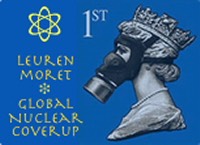
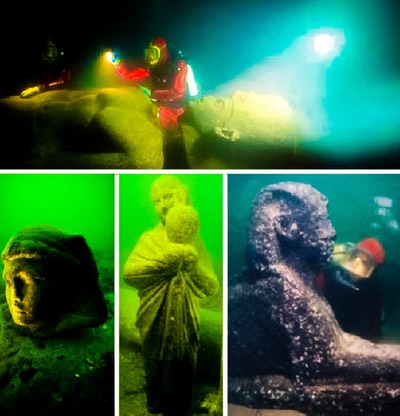

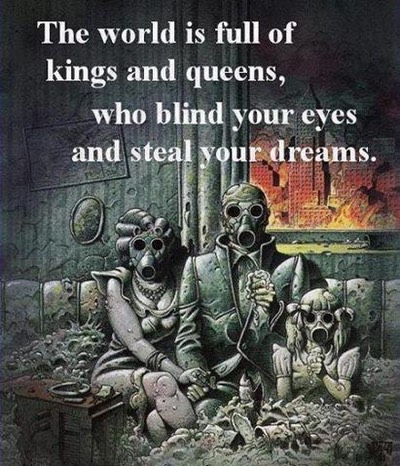
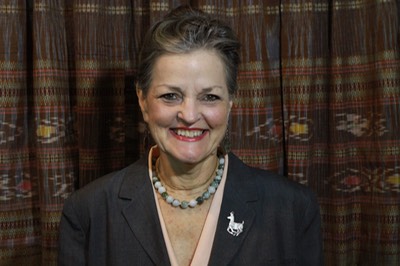
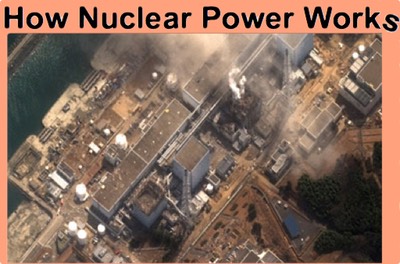
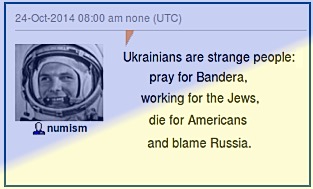

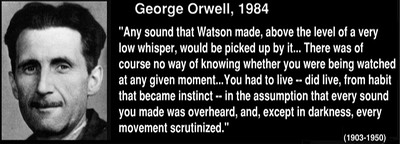
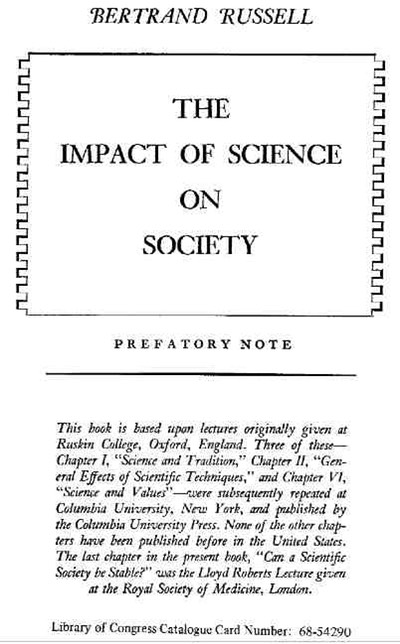
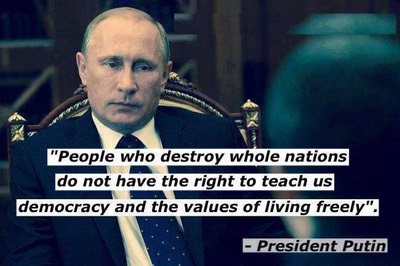
![20120724 - 7-24-2012 The More We Learn - quote from David Rockfeller -_thumb[2]](../../_Media/20120724---7-24-2012-the_med_hr.jpeg)
